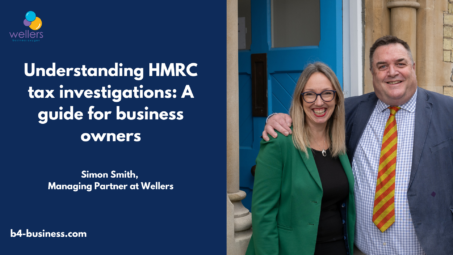
The Spring Budget: What you need to know
Tom Biggs, Associate at Oxford-based accountancy firm Wellers, provides the key highlights from Chancellor Jeremy Hunt’s recent Budget statement.
Initial expectations for the Budget included speculated tax cuts, possibly influenced by the impending general election to win favour with the public. And while the Chancellor claimed a reduction of £29bn in taxes since 2020, closer examination of the figures reveals a different picture of tax rises amounting to £62bn once measures including frozen tax bands and allowance cuts are considered.
The substantial financial commitments to rescue the banking sector and support the economy during the pandemic have led to a significant national debt, prompting tax increases to maintain economic stability. With the tax burden reaching nearly 37% of GDP, implementing tax cuts, such as Jeremy Hunt’s proposal to abolish National Insurance, seems an impossible challenge without substantial cuts to public spending. Which, according to the thinktank, Progressive Economy Forum, has already surpassed half a trillion pounds.
The key announcements
The Budget covered several areas including:
• VAT threshold increase
• The extension of the Recovery Loan Scheme (RLS)
• National Insurance Contributions (NICs) cut
• Reforms to ISAs
• The elimination of non-domicile tax status
For businesses, the most important announcements include:
• The increase in the VAT threshold from £85,000 to £90,000 is estimated to help 28,000 small businesses. However, it has been criticised for not going far enough considering the significant inflation since the last threshold change in 2017. Additionally, the deregistration threshold, which increased from £83,000 to £88,000, will mean businesses that were previously eligible to deregister may no longer meet the criteria due to the higher threshold, leading to fewer businesses being able to exit the VAT scheme.
• The extension of the RLS with a £200m allocation. This has been designed to helpbusinesses still facing financial challenges due to the pandemic continue to accessloans that could be crucial to fuel investment, cover operational costs, or manage cash flow.
• A reduction in NICs from April 2024. Whilst employer’s NICs remain the same at 13.5%, the reform will help employees and the self-employed.
• The abolishment of the furnished holiday letting regime, which means that many properties held personally and run on a commercial basis may see their tax liabilities increase through the restriction of mortgage interest deductibility, as well as increased capital gains tax liabilities on disposal and exit.
• Additionally, the British ISA system is set for reform to encourage investment in UK assets by introducing a three-year British savings bond. Although, the interest rate offered for this bond is yet to be announced which will be crucial in determining the overall attractiveness of the product.
In summary
The Spring Budget 2024 includes a mix of tax cuts, reforms, and adjustments aimed at navigating economic challenges and promoting fiscal responsibility. But the proof will be in the pudding whether these measures are effective in the long run.
Find more insight on the Budget from Wellers.
More in Accountants

Why having an audit can boost your business
Many directors will wince at the prospect of an audit, seeing it as a necessary evil to meet statutory obligations.

FRC Proposes Major Overhaul of Auditing Standards
In a bold move, the Financial Reporting Council (FRC) has unveiled proposed changes to auditing standards that could have a major impact on the financial world, according to chartered accountants and business advisors Whitley Stimpson.

Whitley Stimpson shines as finalist for top national award
Service Charge Accountancy specialist Jonathan Walton of Whitley Stimpson has been recognised for his outstanding work in the field by being shortlisted for a prestigious property industry award.
From this author

Budget 2024 review: A bitter pill for SMEs?
Tom Biggs, Partner at Wellers, the Oxford-based small business accountants, discusses the latest Budget and the impact it will have on SMEs.

Understanding HMRC tax investigations: A guide for business owners
Simon Smith, Managing Partner at Wellers, discusses what business owners need to know about tax investigations, including whether you could be a target.

Evolution and Growth for Oxfordshire’s Wellers
Simon Smith takes the helm as Managing Partner


